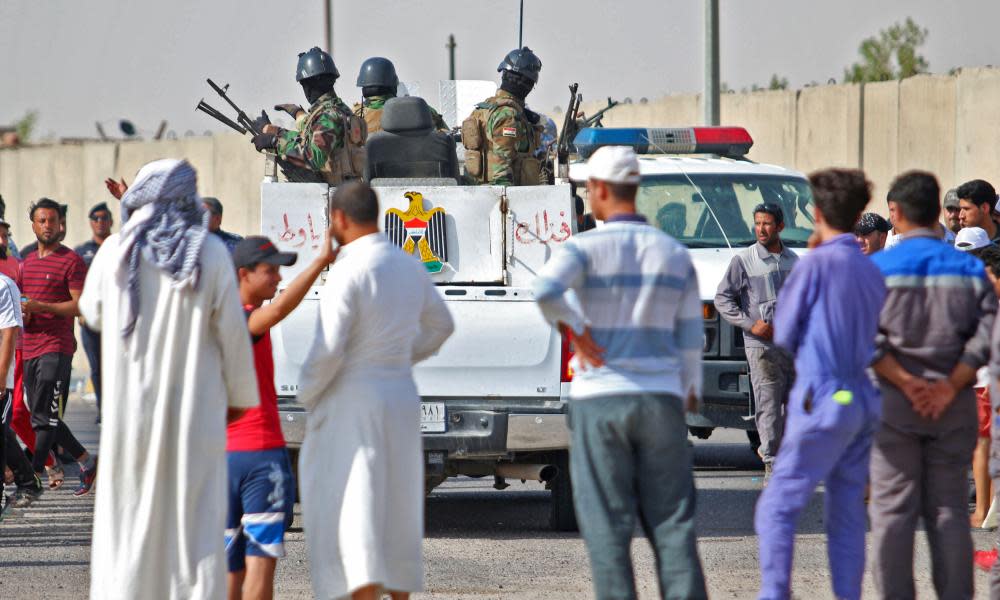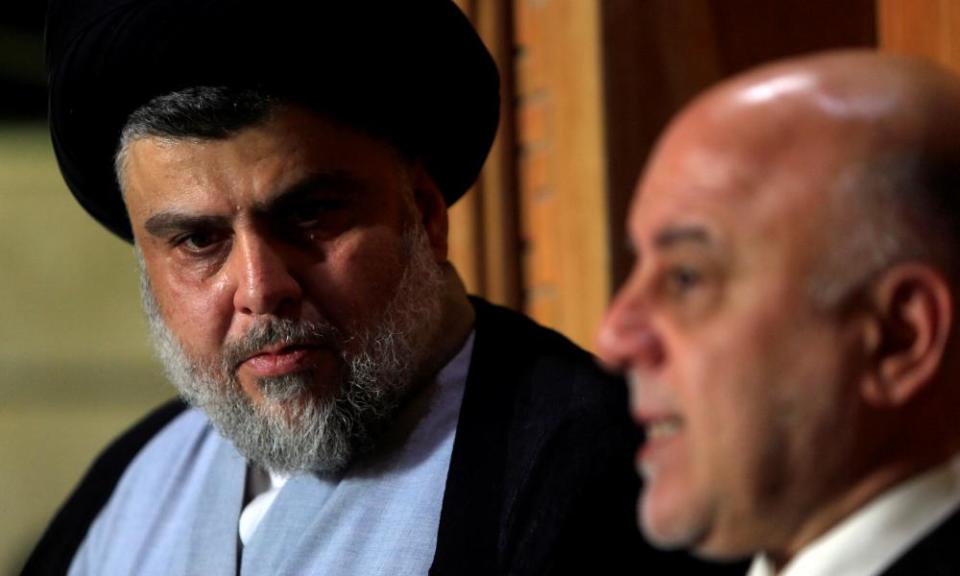Protests spread through cities in Iraq's oil-rich Shia south

Widespread unrest sweeping across the oil-rich Shia heartland of southern Iraq has continued for a second week, as protesters defied riot police to vent their anger over electricity cuts, poor services and unemployment amid post-election uncertainty.
Demonstrations that began last week in Basra, the biggest city in the south and the country’s main oil hub, have spread to other cities including Amrah, Nasiriyah, Samawa, and the Shia holy cities of Najaf and Karbala.
Protesters have stormed government offices, but in an unusual development, also buildings belonging to elite Shia militias. They also briefly disrupted the operation of an international airport in Najaf last week.
Several protesters have been killed in clashes with security guards since the unrest began and hundreds have been wounded.
The turmoil has increased pressure on the country’s prime minister, Haider al-Abadi, who was already in a delicate position. He is in charge of a caretaker government due to remain in place until various parties which failed to gain an outright majority in 12 May parliamentary elections form a coalition.
That will determine whether Abadi can stay in office for a second term or whether a new prime minister will be ushered in to govern Iraq, which is in a fragile state after a three-year war with Islamic State. Abadi’s Dawa party has dominated Iraqi politics since the 2003 US-led invasion that toppled Saddam Hussein.
The Shia cleric Moqtada al-Sadr’s political bloc, which opposes the US but also Iranian influence, won the largest number of seats in the parliamentary vote, but he is not in the running to become the new prime minister as he did not stand in the elections.
Residents of Basra, which accounts for 80% of the country’s oil exports, believe that it has been neglected, first by the Sunni dictator Saddam Hussein, and then by the Shia-led governments that came after him, including Abadi’s. Crude exports account for 95% of state revenue and prolonged instability in the south could drive up global oil prices.

Internet access in Iraq has been dramatically reduced amid recurring power cuts and poor water quality.
On Tuesday, 250 protesters gathered at the main entrance of the Zubair oilfield near Basra. They were met by riot police, who wielded batons and rubber hoses to tackle the crowd. Three protesters were killed. One died after clashing with the police at West Qurna, one of the country’s largest oilfields, in the west of Basra.
During the weekend, two protesters were killed during demonstrations in the town of Samawa. Grand Ayatollah Ali al-Sistani, the top Shia cleric in Iraq, who mostly stays away from politics, has thrown his weight behind the protests.
Esam Jabbar, 24, who has been out of job, told Reuters: “We the people of Basra hear about the Iraqi oil and its huge revenues, but we never enjoy its benefits... strangers have decent jobs at our oilfields and we don’t have the money to pay for a cigarette. That’s wrong and must be stopped.”
Usama Abbas, 25, an unemployed college graduate in Basra, said since the fall of Saddam Shia politicians had been repeating “lies”. “We still drink filthy water and forgot what air conditioning means during summer,” he said.
Murtadha Rahman, 22, ran barefoot on the scorching pavement to try and escape a charge by police outside the Zubair field during Tuesday’s protests.
“I live in a place which is rich with oil that brings billions of dollars while I work in collecting garbage to desperately feed my two kids. I want a simple job, that’s my only demand,” said Rahman, who said he was beaten by police.
“I won’t go even if you kill me. I will stay here. I want a job,” he added.
Reuters contributed to this report

 Yahoo News
Yahoo News 